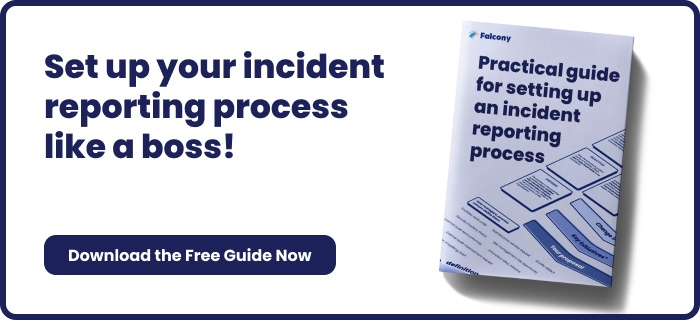7 Most Common Safety Risks in Hotels
Hotels are meant to be sanctuaries of comfort and relaxation for guests, but behind the scenes, numerous safety risks lurk, potentially compromising the well-being of both guests and staff.
Understanding and mitigating these risks is crucial for ensuring a safe and secure environment within hospitality establishments. In this blog, we'll explore the seven most common safety risks in hotels, shedding light on their causes and offering strategies for prevention to uphold the highest standards of safety for all.
1. Fire Hazards
Fire hazards pose a significant risk in hotels due to various factors such as kitchen operations, electrical systems, and combustible materials. Faulty wiring, overheated appliances, or negligent guest behavior can spark fires, endangering lives and causing property damage. Regular fire safety inspections, staff training in fire prevention and evacuation procedures, and installation of firefighting equipment are essential to mitigate this risk.
2. Slips, Trips, and Falls
Slippery surfaces, cluttered walkways, and uneven flooring are common contributors to slips, trips, and falls in hotels. Spills, inadequate signage, or poorly maintained facilities can increase the risk of accidents, resulting in injuries to guests and staff. Implementing rigorous housekeeping protocols, maintaining clear pathways, and installing non-slip flooring can help prevent such incidents.
3. Security Breaches
Hotels are susceptible to security breaches, ranging from unauthorized access to guest rooms to theft of personal belongings. Inadequate surveillance, malfunctioning door locks, or lax security protocols can compromise guest safety and privacy. Enhancing security measures, including surveillance systems, access control, and staff training in security procedures, is essential to deter and respond to security threats effectively.
4. Foodborne Illness
Food safety is paramount in hospitality, yet hotels face risks of foodborne illness due to improper food handling, storage, and hygiene practices. Contaminated ingredients, inadequate cooking temperatures, or cross-contamination can lead to outbreaks of foodborne diseases, jeopardizing guest health and satisfaction. Implementing stringent food safety protocols, regular inspections, and staff training in proper food handling techniques are critical to prevent such risks.
5. Electrical Hazards
Electrical hazards, such as faulty wiring, overloaded circuits, or exposed electrical components, pose risks of electrocution and fire in hotels. Aging infrastructure, improper maintenance, or unauthorized modifications can exacerbate these risks. Regular electrical inspections, prompt repairs of identified hazards, and staff training in electrical safety procedures are essential to mitigate the dangers posed by electrical hazards.
6. Drowning Incidents
Hotels with swimming pools or water features face the risk of drowning incidents, especially involving unsupervised guests or inadequate safety measures. Insufficient fencing, lack of lifeguards, or non-compliance with safety regulations can increase the likelihood of accidents. Implementing strict safety protocols, providing lifeguard supervision, and educating guests about pool safety rules are crucial to prevent drowning incidents.
7. Pest Infestations
Pest infestations, such as rodents, insects, or bed bugs, can tarnish a hotel's reputation and compromise guest comfort and safety. Poor sanitation, structural deficiencies, or inadequate pest control measures can contribute to pest problems. Implementing proactive pest management strategies, maintaining cleanliness standards, and conducting regular inspections are essential to prevent and address pest infestations effectively.
Conclusion
By identifying and addressing these seven common safety risks, hotels can create a secure environment that prioritizes the well-being of guests and staff. Vigilance, proactive risk management, and adherence to safety protocols are essential to mitigate risks and ensure a safe and enjoyable experience for all who enter the doors of hospitality establishments. Let's work together to uphold the highest standards of safety and hospitality excellence in the industry.
If you're seeking a solution to enhance your hotel's safety and incident reporting practices, Falcony | Observe has you covered. Explore more details on our website or try out our 30-day free trial today:
We are building the world's first operational involvement platform. Our mission is to make the process of finding, sharing, fixing and learning from issues and observations as easy as thinking about them and as rewarding as being remembered for them.
By doing this, we are making work more meaningful for all parties involved.
More information at falcony.io.

Related posts
Top 10 Unsafe Acts in Hospitality and Tourism
In the fast-paced world of hospitality and tourism, safety is not just a priority but a...
6 Most Common Unsafe Acts in Hotels
In the hospitality industry, ensuring the safety of both guests and staff is paramount.
Hotels are...
7 Common Accidents in Events Management and How to Prevent Them
While events, concerts and conferences are meant to be memorable and enjoyable, they also come...





